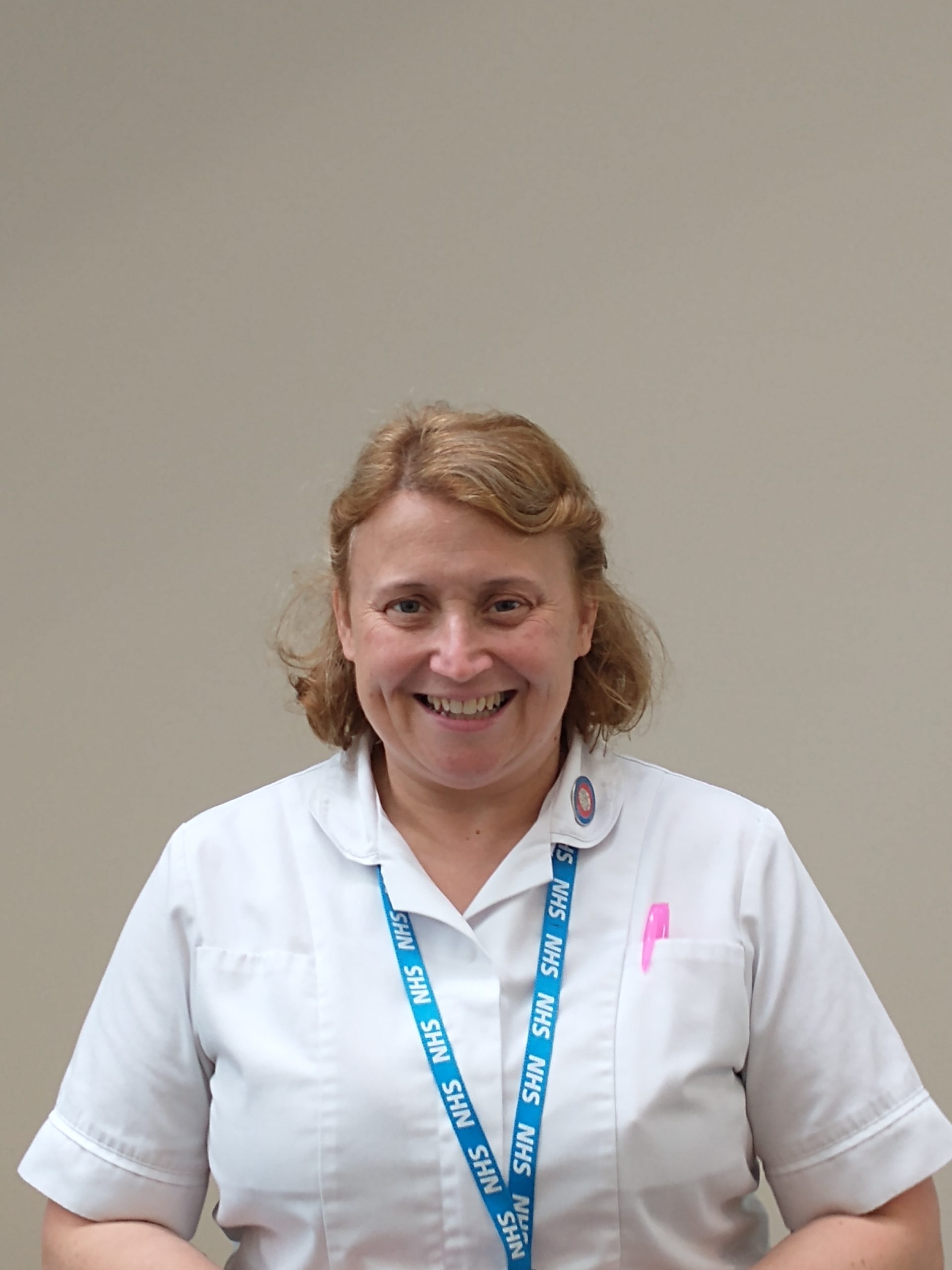

Inspirational Story
Lucy Barber-Starkey
What was your experience of school?
When I was at school I was part of everything extra-curricular that was offered, sport, music, drama but I didn’t appreciate the academic side of school. Apparently I was bright, but it didn’t interest me so I wasn’t motivated and I was able to pass my exams with minimal effort.
What was the next step after school?
I followed my heart by going to Art college and then onto University to study a Creative Arts Degree. It was great to study something I enjoyed however it didn’t leave me with any real career opportunities.
Unsure of what direction to take, encouraged by family I applied to study nursing.
I had no previous experience of nursing or the world of healthcare and I wasn’t prepared for what it was like in reality. After a period I realised that I wanted to be able to spend valuable time supporting patients but in a nursing role I was limited in how much quality time I was able to spend with patients due to how busy the role is. It just wasn’t the right career for me.
How did you find out about a role as a AHP Support Worker?
During this time a friend with whom I played hockey discussed with me what it thought I might like to do. I knew that healthcare was somewhere I would like to work and we discussed options.
He was a Physiotherapist and advised that I apply for a role that was available within his team on a 6 month short term contract so that I could get a better idea of other roles available in healthcare. This opportunity opened my eyes to alternative healthcare related roles and an introduction to AHP’s.
We are often the first point of contact, the person with the opportunity to make the patients’ experience good or bad, to make them feel at ease
What has been your career journey so far?
22 years on and I have worked all over both the acute and community settings as a AHP Support worker. Initially in Physiotherapy and more recently as an associate practitioner in a generic therapy role. I’ve been lucky enough to have worked in some amazing teams in lots of specialities and feel I have a very varied knowledge.
What have you learnt during this time?
I have learnt that I thrive best in small specialist teams where I can get a full understanding of a condition and use this knowledge to have the best understanding of my patients so they are always at the center of the care I offer.
What is your role now?
Currently I am on secondment from my substantive role of associate practitioner in Community Therapies in a non-clinical role.
An opportunity arose for a support worker to be part of a Health Education England funded project to look at the AHP support workforce within out Trust. Non-clinical project work was not something I was aware that support workers could do and the idea excited me. I was fortunate to be successful at interview and have been working as part of the AHP Workforce Planning Project team since December.
What has been your experience of this new role?
The project has opened my eyes to the world of AHP to which I now realised I had a very ‘Therapy’ biased view. Engaging with the support workforce and hearing people’s stories has been illuminating and I hope that the information we are collating can be used to improve the experiences and career opportunities for the AHP workforce within out Trust and across the professions.
Knowing that there are non-clinical opportunities for AHP support staff has also opened my eyes to different career progression routes.
22 years on I’m still passionate about my job, how many people can say that!
What do you love about your role as an AHP Support Worker?
In many healthcare professions patient care is the responsibility of the support staff and the Allied healthcare professions are no different.
We are often the first point of contact, the person with the opportunity to make the patients’ experience good or bad, to make them feel at ease. I know it sounds very cheesy but a smile and a kind word can make all the difference not just for the patient but all those you interact with.
Being currently office/home based it’s the interaction with patients I miss, knowing that in whatever small way I make a difference to my patients is what it’s all about.
Any advice for those interested in this type of role?
If you are looking at healthcare related careers then the Allied Health Professions offer many different opportunities and being a member of the support workforce is genuinely rewarding.
If you are unsure of which area you would like to work in, get some experience, see what’s available, move disciplines, it’s ok to take time to find your happy place. You may start in Physiotherapy but realise you have a passion for feet and Podiatry is more your thing. You might get a job in Radiology but find out that surgery fascinates you and becoming and Operating Department Practitioner (OPD) is more your thing.
The one thing I can tell you is that 22 years on I’m still passionate about my job, how many people can say that!
